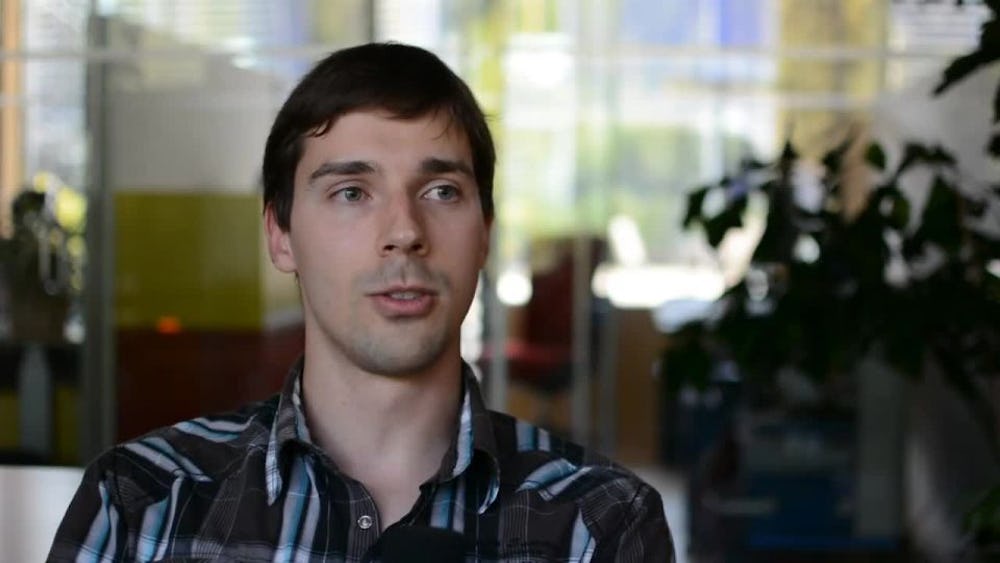
Transkript
Drei Ratschläge an Dein 14jähriges Ich!
Don’t work during the holidays just to make money. Instead you should try out a whole variety of different companies to find out which you find interesting and where you would like to focus your future career. In the end you want to find out what you enjoy. Naturally, it’s important that you like the job you choose. It will become monotonous or routine if you don’t take pleasure in your work. An important aspect of holiday jobs is to ensure that you don’t always do the same thing just because it’s easy and the company would be willing to take you next year. Instead you should try out a variety of different jobs to get to know a range of companies.
Was steht auf Deiner Visitenkarte?
This is the advice of André Komes, Software Developer for Embedded Systems.
Was ist das coolste an Deinem Job?
One thing I really like about my work is that you get this sense of achievement when you have finished something, and it works properly. It is also fantastic to see a product being used, and working smoothly, at the end of the project. Of course that’s a cool feeling.
Welche Einschränkungen bringt Dein Job mit sich?
The embedded software that I create is pretty much invisible, so one of the major restrictions is that you don’t get much feedback from the customer. And the only feedback you’re likely to get from the customer is that “this thing or that thing is not working”. After a while you get the feeling that there isn’t a single customer out there who can use the software at all. But apparently there are a few who receive faultless products. The other drawbacks are just typical of development: there will always be faults, and you simply have to cope with locating and fixing your own mistakes. It doesn’t get better. There will always be mistakes, no matter how much experience you acquire.
Worum geht es in Deinem Job?
Omicron makes test solutions for energy providers, for transformer stations, etc., and these solutions are used to test the protective mechanisms. I am responsible for developing the embedded system software, which is the software that runs directly on the devices. It is controlled by special PC software and suchlike, or in some cases it runs automatically. During the week I turn up at my workstation, sit in front of the PC all day testing software, programming, and locating and repairing my own mistakes. I have quite a lot to do with other people, and we work in fairly tight teams. This means we complete projects in teams made up of 5 to 10 people from the department, but within the projects themselves we work quite independently. We hold several meetings, and depending on the size of the team or whether we are at the start or the end of a project there are quite a few things to plan. This frees up time for our development work later on. The people here in the Embedded Unit mainly use C++, and sometimes C+. It really depends how deep the layer is in the device. But C++ is the main language we use for embedded software.
Wie sieht Dein Werdegang aus?
I attended the HTL in Rankweil. After completing my Alternative National Service I enrolled in a degree course in IT, or technical informatics, at the Vienna University of Applied Sciences. I always had holiday jobs while I was at university. But more or less out of convenience they were in my father’s company, because I didn’t really have to do all that much. Then a few of my student friends told me about Omicron, and suggested that I apply for a job there, which I did. Thank God they took me, and at the end of the holiday job they made me an offer to continue in the company on a part-time basis while I completed my degree course. The offer was fairly lucrative and attractive from a student perspective. I was given a full-time position when I graduated from university. So my first encounter with the company was in 2009, and since then I have been here without a break. If I remember correctly the first three years were on a part-time basis, and since then full-time.
Ginge es auch ohne Deinem Werdegang?
It would certainly have been difficult without the HTL. In this job you do need a technical education, and without one you are unlikely to be accepted. My degree course may not have been absolutely necessary, but it was definitely helpful. I suppose it depends on the qualifications needed for the specific vacancy. For instance, it is possible that the company is looking to strengthen a team, and will therefore be keen to recruit novices or beginners. Other times it will be looking for specialists in a technical field. In the latter case it will be difficult to get the job without a degree or professional experience. It is certainly beneficial to have some programming experience, because once you start, before you even start maybe, it’s likely you’ll be presented with a variety of different tasks, and if you can make a good impression it’s all the more likely you will be accepted. So it is definitely an advantage if you have a bit of a background in development or programming languages, and not just at school.
Mehr von OMICRON
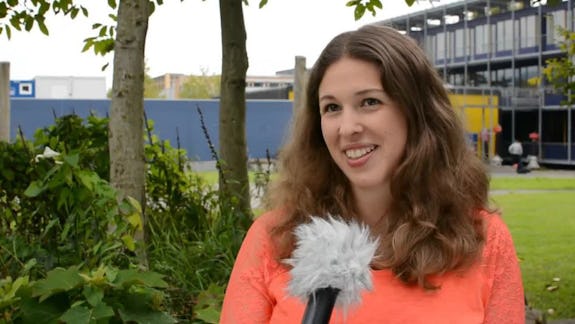
Ines Halbritter
“Wenn ein Produkt sowohl intern als auch extern beim Kunden Begeisterung hervorruft, das ist einfach Balsam auf einer Entwicklerseele”, verrät Ines Halbritter über die schönen Seiten ihres Jobs als Software Developer bei OMICRON. Die Voraussetzung für diesen Job: “Was man auf jeden Fall mitbringen sollte, ist eine Vorliebe für das Lösen kniffliger Probleme und Durchhaltevermögen.”
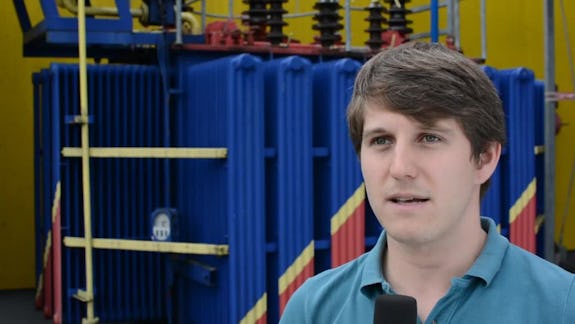
Markus Märk
“Ständig den Überblick zu behalten bei Dingen, die man nicht selbst in der Hand hat, immer am neuesten Stand zu sein, zu wissen, was läuft, obwohl man selbst nicht daran arbeitet”, beschreibt Markus Märk die größte Herausforderung seiner Tätigkeit bei OMICRON. Bezüglich seiner Job Description hilft er auf die Sprünge: “Auf Deutsch wäre es wahrscheinlich ‘Produktionsleiter vom Gerätezusammenbau’.”
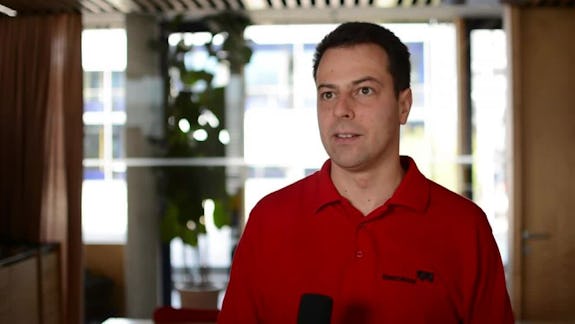
Martin Anglhuber
„Nimm's leicht, schau dir das Leben und die Welt an”, würde Martin Anglhuber seinem 14-jährigen Ich raten. Die Freiheiten in seinem Beruf als Application Engineer bei OMICRON stellen ihn zugleich aber auch vor eine Herausforderung: „Da ich meine Arbeit sehr selbstständig plane, habe ich im Prinzip immer Arbeit, wenn ich will.”
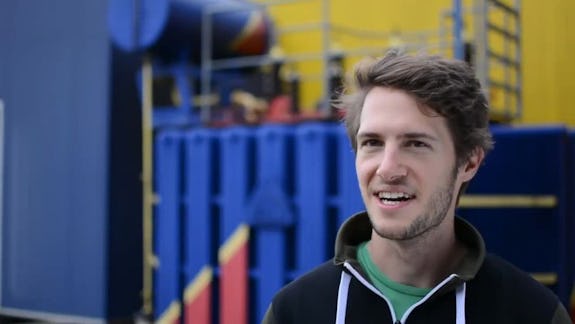
Mathias Kreuter
“Ich finde, Leute machen sich viel zu viele Gedanken, was in den nächsten zwei, drei oder fünf Jahren passiert, es kommt meistens sowieso immer wieder anders”, erzählt Mathias Kreuter. Charakterliche Voraussetzungen für seinen Job als Trainer bei OMICRON? “Ich sag immer, als Mensch entwickelt man sich mit seinen Aufgaben.”
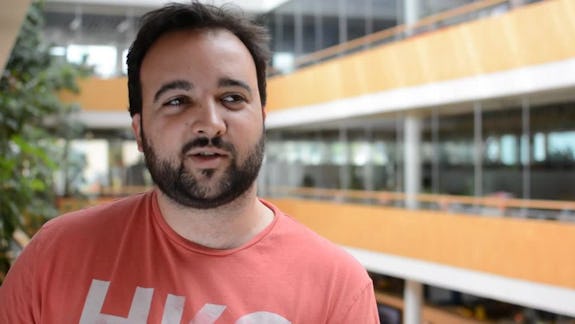
Pedro Ayala
“It’s really satisfying to see, that the things you’ve planed, did work. Some things don’t work as expected, but it is also challenging to find a way to solve that”, Pedro Ayala tells about his job as Hardware Developer at OMICRON. Its biggest challenge? “Making hardware is long-term thinking. You have to make good decisions early.”
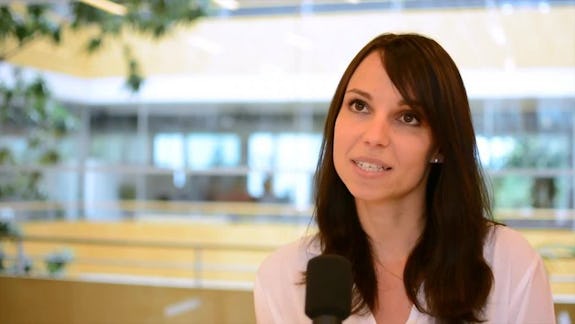
Janine Mattle
“Es ist nicht schlimm, wenn du noch keinen genauen Plan, keine genaue Vorstellung über dein Leben hast, das ergibt sich schon!”, würde Janine Mattle ihr 14-jähriges Ich beruhigen. Das erlebt sie auch in ihrem Job im Bereich Financial and Legal Services bei OMICRON: “Jeder Tag ist sehr herausfordernd, man weiß nicht, was auf einen zukommt und das mag für den einen oder anderen schon stressig sein.”
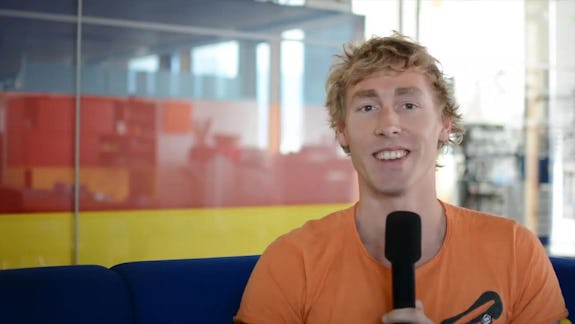
Justin Taylor
“Ich würde mehr programmieren, mit 14 statt mit 20 anfangen”, erinnert sich Justin Taylor, der im Develop Test Procedure von OMICRON tätig ist. Kommunikation spielt auch in seinem Job eine große Rolle: “Ich muss auch mit den Hardwareentwicklern oder jemandem im Prüffeld reden, um zu sehen, ob ich richtig verstanden habe, was sie für Erwartungen haben und damit mein Test funktioniert.”
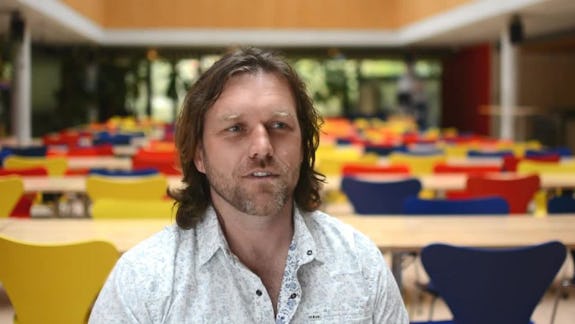
Bernd Marte
“Grad das Studium, was gibt dir das mit? Das ist im Grundsatz ja eine Mithörkompetenz und wenn man dann in ein Unternehmen reingeht und sich einem Thema widmet, kommt man nicht daran vorbei, dass man sich in dem spezialisiert, Erfahrung sammelt”, erinnert sich Bernd Marte an seinen Berufseinstieg zurück. Die wenigen Vorgaben und das Fehlen des klassischen Feedbacks vom Chef sind für ihn auch Herausforderungen im Projekt Management bei OMICRON: “Man muss sich echt selber Gedanken machen, ob’s gut oder schlecht ist.”
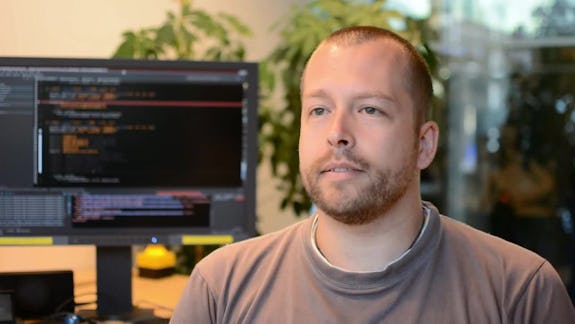
Daniel Brenner
“Am meisten Spaß macht mir die Detektivarbeit, die manchmal nötig ist, um dem Bug wirklich auf die Spur zu kommen”, erzählt Daniel Brenner über seinen Beruf im Bereich Software Quality Assurance bei OMICRON. Die Einschränkung hingegen? “Dass die Quality Assurance oftmals stiefmütterlich behandelt wird, sodass man im Projekt erst sehr spät zum Zug kommt und dann innerhalb kurzer Zeit sehr viel testen muss.”
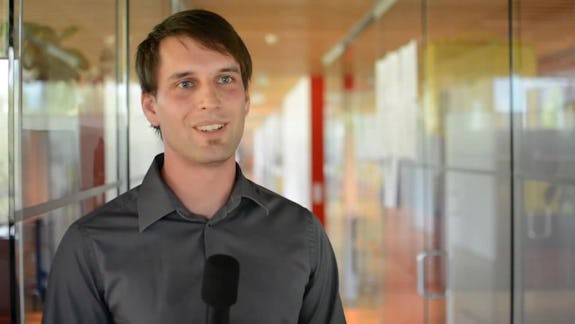
Stephan Geiger
“Ich denke, es ist ganz wichtig, dass, wenn man etwas anfängt, dass man das auch durchzieht. Man verbaut sich dadurch nichts und hat trotzdem noch viele Möglichkeiten offen danach”, rät Stephan Geiger. Die größte Herausforderung an seinem Job als Product Manager bei OMICRON: “Dass man zeitlich auch mal flexibel sein muss, besonders wenn man mit den Kollegen oder Kunden in den USA zu tun hat.”
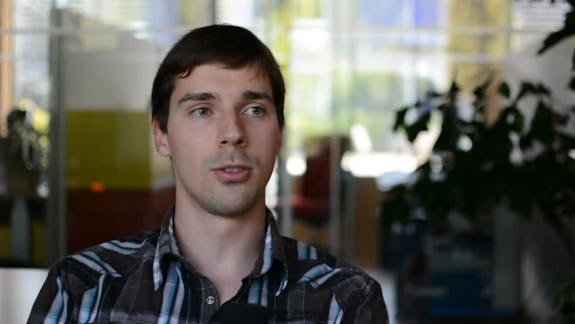
André Komes
“Verwende den Ferialjob nicht nur um Geld zu machen, sondern versuche auch, verschiedenste Firmen auszuprobieren, dann sieht man eher, welche Unternehmen für einen interessant sind”, rät André Komes, Embedded Software Developer bei OMICRON. Die größte Einschränkung an diesem Job? “Dadurch, dass ich Embedded Software mache, die mehr oder weniger unsichtbar ist, bekommt man nicht gerade viel Feedback von den Kunden.”
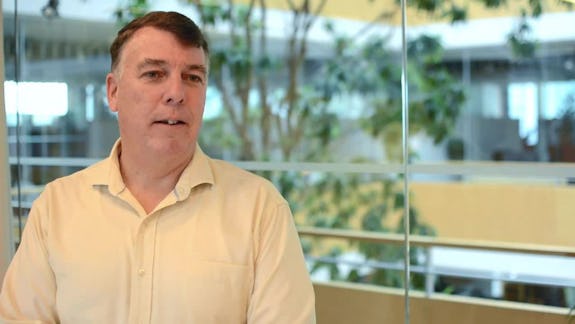
Scott Williams
“Do your best in school, it just helps you in the future”, Williams Scott would tell his 14-year-old self. What he likes best about his job as Marketer at OMICRON? “That I can be creative, finding new ways to write about products, to present them and I like to solve problems through communication.”
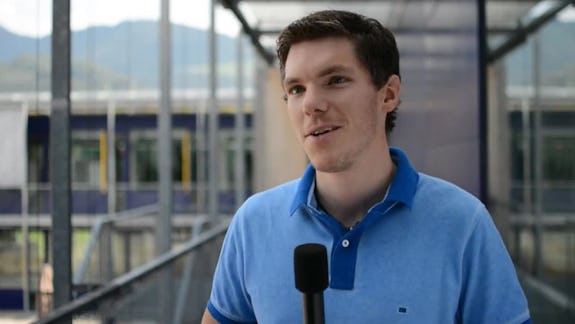
Michael Jäger
“Einfach Spaß am Leben zu haben, sich nicht irgendwo in eine Rolle reinzwängen, sondern wirklich das machen, was man möchte”, ist Michael Jägers persönliches Motto. Die Hauptaufgabe in seinem Job als Technical Support bei OMICRON: “Das Beantworten von Kundenanfragen technischer Natur.”
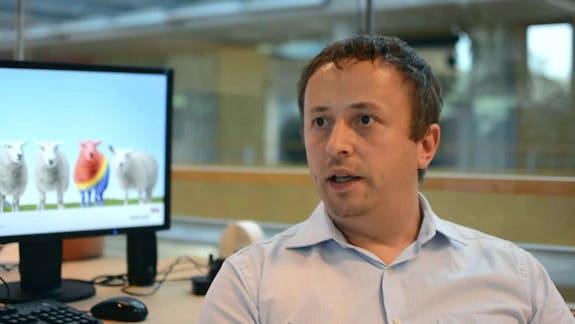
Günter Gehrer
“Das Coolste an meiner Tätigkeit ist, dass ich sehr viel mit Menschen zu tun hab und mit denen gemeinsam Lösungen und Ziele vereinbare und diese dann umzusetzen versuche”, erzählt Günter Gehrer über seinen Job im Information System ERP-Business Services bei OMICRON. Wozu sein Enterprise Resource Planning-Bereich dient? “Alle betriebswirtschaftlichen Prozesse sind in der Software abgebildet und integriert und damit arbeiten die Leute weltweit.”

